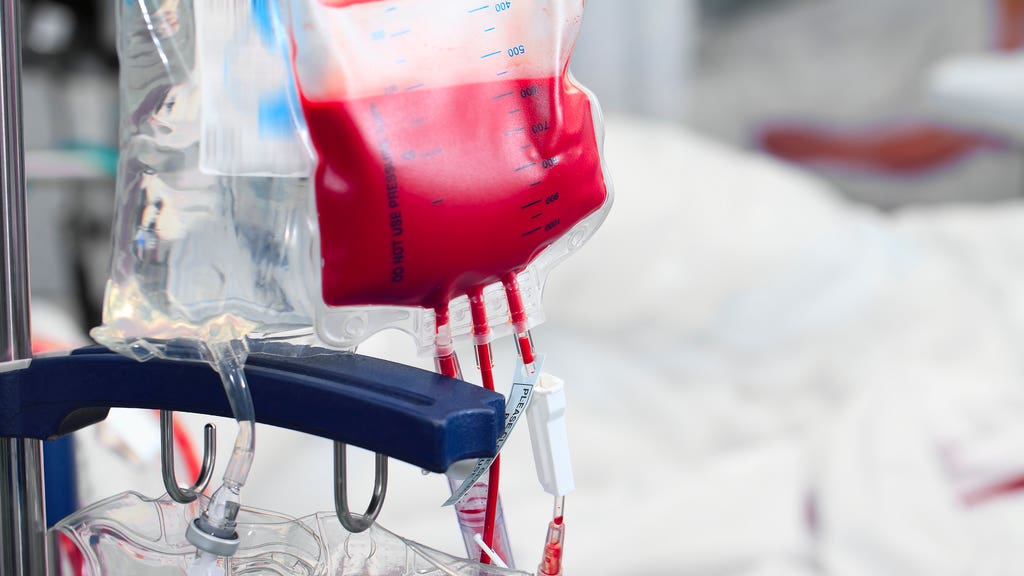All secondary school students expected to learn about blood and organ donation on curriculum
‘We see considering the types of donation as a rite of passage to becoming an adult,’ NHS official says

Your support helps us to tell the story
From reproductive rights to climate change to Big Tech, The Independent is on the ground when the story is developing. Whether it's investigating the financials of Elon Musk's pro-Trump PAC or producing our latest documentary, 'The A Word', which shines a light on the American women fighting for reproductive rights, we know how important it is to parse out the facts from the messaging.
At such a critical moment in US history, we need reporters on the ground. Your donation allows us to keep sending journalists to speak to both sides of the story.
The Independent is trusted by Americans across the entire political spectrum. And unlike many other quality news outlets, we choose not to lock Americans out of our reporting and analysis with paywalls. We believe quality journalism should be available to everyone, paid for by those who can afford it.
Your support makes all the difference.All secondary students in England are expected to learn about blood and organ donation on the school curriculum this year.
The move is hoped to encourage young people to become donors and to talk to others about donating.
As well as blood and organ donation, all secondary school pupils are set to learn about stem cell donation, which can be used to treat blood cancers and disorders.
Donation is taught as part of Health Education, which was made compulsory for secondary schools last year.
However, schools may not have managed to cover the full content of Relationships, Sex and Health Education (RSHE) last year given the disruption faced during Covid.
The Independent understands the government expects this curriculum to be taught in full to secondary school pupils this year.
NHS Blood and Transplant (NHSBT) has worked with blood cancer charity Anthony Nolan and teachers to develop free resources for schools to use for lessons.
Alex Cullen from NHSBT said the body – which is responsible for blood donation in England, organ donation in the UK and the British Bone Marrow Registry – is “delighted” that donation is being taught as part of the secondary school curriculum.
“We see considering the types of donation as a rite of passage to becoming an adult, these lessons will allow pupils to discuss donation and empower them to make their own informed decision,” he said.
The NHSBT head of marketing added: “If young people support donation after learning about it, we know they can be hugely influential and can help advocate for us and ultimately help us save more lives.”
Around 1.4m blood donations are needed in England every year to help hospital patients across the country.
Terence Lovell from Anthony Nolan said the new resources for schools will “provide young people with an introduction to altruistic donation and enable them to start important conversations with their families and friends”.
He added: “Without incredible young donors, Anthony Nolan simply couldn’t keep saving lives.”
A spokesperson from The Sickle Cell Society said the charity welcomes this educational initiative.
“People from African and Caribbean backgrounds are more likely to have certain blood types commonly found in those with sickle cell, so we need more people from these ethnicities to come forward and register as a donor,” they told The Independent.
“We feel optimistic that the changes to the curriculum will support us and all of those working in the field of blood, organ and stem cell donation to build new generations of donors who have a firm understanding of why donation is important and the life saving impact it can have on those with serious health conditions.”

Orin Lewis, co-founder and CEO of the African Caribbean Leukaemia Trust, said: “Educating secondary school pupils on blood, organ and stem cell donation is something ACLT has been doing with great success, over the last 25 years.
“A high percentage of the thousands of pupils we’ve engaged with, respond positively through the questions they ask, with many of the pupils going on to register to join all three donor registries - their enthusiasm to help save the life of a potential stranger, always leaves us in awe.
“We wholeheartedly support this new addition to the national curriculum which we know from experience, will ultimately lead to save many more lives.”
Reshna Radiven, head of communications and engagement at blood cancer charity DKMS, said: “We are delighted that all secondary school children in England are now being taught how to save lives through donation, as part the national curriculum for the first time.
“This has the potential to save thousands of patients who lose their lives each year due to a lack of available organ donors.“
New rules came into effect earlier this year allowing more gay and bisexual men to donate blood, which meant donors are no longer asked if they are a man who has sex with another man.
And last year, the organ donation system in England changed to an opt-out system, with all adults automatically enrolled.
It has been estimated this move will lead to an additional 700 organ transplants each year by 2023 and reduce the number of patients waiting for the life-changing surgery, which is in the thousands in the UK.
Join our commenting forum
Join thought-provoking conversations, follow other Independent readers and see their replies
Comments